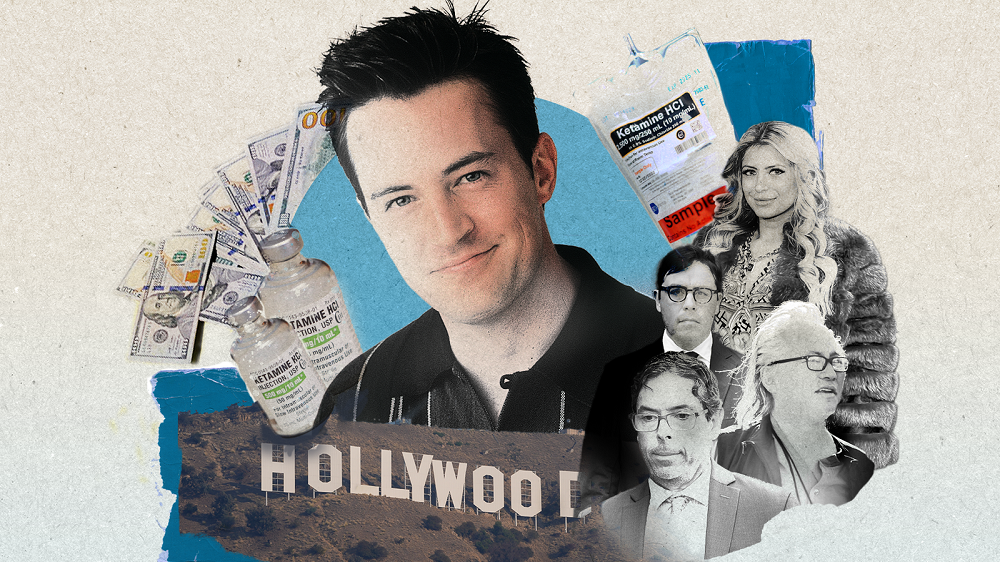The tragic death of Friends star Matthew Perry has pulled back the curtain on a shadowy Hollywood drug network, one where fame, money, and addiction collide in deadly fashion. With Jasveen Sangha known in celebrity circles as the “Ketamine Queen” pleading guilty this week, prosecutors say the case has revealed just how far underground suppliers go to feed demand in the entertainment world.
Court filings show Perry received three ketamine injections in just six hours before he died in his jacuzzi on 28 October 2023. His live-in assistant, Kenneth Iwamasa, had been giving him as many as eight shots a day. “Shoot me up with a big one,” Perry reportedly said before the final, fatal dose.
Sangha supplied the injection that ended his life. Her guilty plea makes her the last of five defendants including Iwamasa and two physicians – to admit involvement. When investigators searched Sangha’s Los Angeles home in 2024, they uncovered nearly 80 vials of ketamine, meth-laced pills, counterfeit Xanax, cocaine, and thousands in cash, alongside gold-plated drug-dealing equipment.
For those close to Perry, the revelations are devastating but not entirely surprising. Despite his success as Chandler Bing, the witty heart of Friends, Perry had spoken openly about his decades-long battle with addiction. “It almost felt like we’d been mourning Matthew for a long time,” Jennifer Aniston said in a recent interview. “I’m glad he’s out of that pain.”
Experts say the case highlights the unique pressures surrounding Hollywood stars – and the vulnerability of those tasked with caring for them. Bonnie Low-Kramen, a former celebrity assistant turned trainer, told Sky that personal staff often feel powerless to refuse dangerous requests. “When people are rich and famous, they often have people around them who won’t say no,” she said. “Assistants are in the yes business anyway.”
Addiction specialists warn that “yes men” can be lethal for those already struggling. “Treatment is difficult when everyone tells you that you can get whatever you want,” said Garrett Braukman, a Hollywood recovery executive.
Perry had been undergoing legal ketamine therapy for depression and anxiety, a treatment used in US clinics for pain and mood disorders. Doctors stress that when administered professionally, the drug can be effective and safe. But Perry’s relapse into unsupervised use proved fatal.
The case has also shone a light on a booming recreational market for ketamine. In England alone, over 3,600 people entered treatment for the drug last year, up from just 426 a decade earlier. Perry’s death, alongside the recent ketamine-related passing of UK drag star The Vivienne, has intensified debate over the blurred line between therapy and abuse.
As Sangha faces sentencing, prosecutors say her clientele was made up of “high-end and celebrity” users, reflecting a system where access and money drive demand. Perry himself once wrote, “When I die, I don’t want Friends to be the first thing mentioned. I want helping others to be the first thing.”
His legacy as both an actor and advocate for recovery remains untarnished. But his final chapter is a grim reminder of the dangers that lurk behind Hollywood’s glamour.


